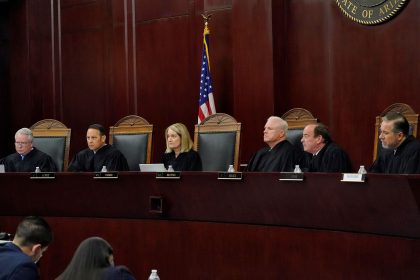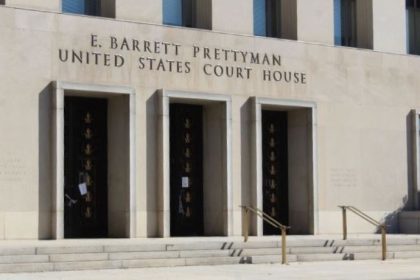Redistricting Reform: How Tuesday’s Election Changed the Map

Elections matter, but so does timing. Flying under the radar, redistricting took a back seat to candidate races across the country, particularly in key states where the repercussions of the midterm elections will be felt for the next decade. Democrats were largely shut out of the process in 2010, a crucial year before the census reapportionment and mapmaking began at the state level.
Prior to the 2010 election, Democrats maintained control of 27 state legislatures, and an additional 13 were split with Republicans. Following the election, Republicans won more than 700 state legislative seats and flipped control of 11 key statehouses. Without a voice at the table during 2012 partisan redistricting discussions, many Democrats found themselves drawn off the map.
Democrats may have learned their lesson. The National Democratic Redistricting Committee (NDRC), chaired by former Attorney General Eric Holder, launched in January 2017 as the first-ever strategic hub for a comprehensive redistricting strategy. With a four-part plan focused on advancing legal action, mobilizing grassroots energy, supporting reforms, and winning targeted elections, they have attempted to tackle the problem from every side.
The NDRC puts the problem in stark terms, highlighting the fundamental problem with gerrymandering on their website, “In 2012, 1.4 million more Americans voted for Democrats for Congress, but Republicans won a 33-seat majority in Congress. And the problem hasn’t gotten better. In 2016, despite winning fewer than half of all votes for Congress, Republicans again won a 33-seat majority. In battleground states like Pennsylvania, North Carolina, Ohio, Michigan and Virginia, the makeup of state legislatures are wildly different than the voting population.” Their efforts have given voting rights advocates important tools to wrest control back at the state level.
Most importantly, the fight for fair representation is won at the ballot box, and Tuesday’s election provided reason for optimism as key ballot measures were passed and Democrats made inroads in priority states ahead of the 2020 census and next round of mapmaking.
Here is a state-by-state look at how the next round of redistricting was impacted on Tuesday by ballot measures and elections:
Michigan
Michigan has been one of the most egregious examples of partisan gerrymandering that has protected Republican majorities despite lopsided losses at the state level. Even though Obama won Michigan twice in 2008 and 2012, Republicans heavily gerrymandered the state in 2011 to lock their party in power, assuming control of 9 of the 14 congressional districts.
On Tuesday, voters passed a key ballot measure amending Michigan’s constitution that takes politicians out of the process and instead creates an independent redistricting commission comprised of 13 ordinary citizens chosen at random from a pool of applicants. Michigan should expect a much more equitable map in 2022 as politicians will no longer have a hand in the drafting process of congressional and state legislative districts.
Colorado
In Colorado, voters passed two constitutional amendments on Tuesday, Y and Z. The state will now create a 12-person independent redistricting commission to “maximize the number of politically competitive districts.”
With constitutional amendments in place, legislators in Michigan and Colorado will no longer be able to carve the states to their personal benefit and instead give their citizens the opportunity to choose their elected officials.
Missouri
Missouri voters approved Measure 1, a constitutional amendment requiring the state auditor to draw state legislative districts on the basis of partisan fairness. This will ensure election outcomes remain proportional to the state’s overall popular vote.
Utah
Utah took a slightly different path that still gives legislators a role in the political map, but greatly reduces their role and partisan influence. Voters approved a statute creating a bipartisan commission to draw legislative districts. State legislators can still override the map but are required to replace it with one that is void of partisan bias.
Wisconsin & Kansas
New Democratic governors in Wisconsin and Kansas now have veto authority in their states when legislatures pass new district maps in 2021, assuming those legislatures draw maps favorable to Republicans. However, Democrats will have to win additional state legislative seats in 2020 to break Republican supermajorities that could override their governor’s veto.
Nevada
With Steve Sisolak elected Governor in Nevada on Tuesday, Democrats will be able to ensure they have a seat at the table in 2020 if Republicans are able to capture majorities in the statehouse.
New Mexico & Oregon
Both states elected democratic majorities in New Mexico and Oregon’s state legislatures, in addition to the governors’ mansions. This will give democrats the opportunity to draw the next districts with impunity, raising the specter of democratic gerrymandering. However, the election of Democratic governors will ensure a voice in the process if the legislatures swing back in 2020.
North Carolina
North Carolina, like Michigan, is one of the country’s most gerrymandered states. In an election night surprise, Anita Earls won a seat on the North Carolina’s Supreme Court, giving liberals a 5-2 advantage. Echoing the recent case in Pennsylvania where the state Supreme Court struck down the partisan map on the premise that gerrymandered districts illegally dilute a voter’s voice, Earls may be inclined to follow suit in North Carolina and strike down the state’s partisan map. This would give Democrats a much more level playing field ahead of the coming census reapportionment.






















